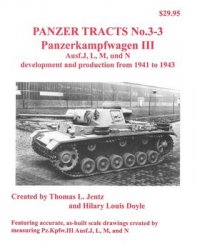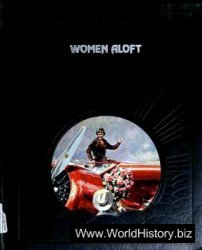Americans moving westward across the Great Plains and mountains to the Pacific’s shores brought with them the Gilded Age political culture of Atlantic seaboard cities. Urban bosses, that is, political power brokers, were a centerpiece of that political culture. New York City’s William M. Tweed, commonly known as “Boss Tweed,” headed the notoriously corrupt Tammany Hall Democratic political machine. Republicans had their city machines as well. Often uneducated, bosses rarely held high-profile public office; instead, they tended to control those who did through bribes and other unsavory means. Party bosses offered aid to needy, recently arriving European immigrants in exchange for their electoral support of machine candidates for public office.
Late nineteenth-century San Francisco, the Pacific Coast’s leading city commercially and in practically every other way, had become a variant of this transplanted model of municipal politics. This is especially important because of San Francisco’s regional influence. As Lord James Bryce, the famed British observer and diplomat, noted, San Francisco was
“more powerful. . . than is any Eastern city over its neighborhood.” The City by the Bay’s “neighborhood” extended to the seal fisheries of Alaska, the sugar fields of Hawai’i, and the tea plantations of Asia. San Francisco’s money financed a fair amount of Portland, Oregon’s development, and its steamers - as has been shown - fed much of Arizona’s economy via the Pacific-Gulf of California maritime trade. Called the “Queen City of the Pacific” because of its commercial dominance in that ocean, San Francisco happenings, including politics, had ripple effects far beyond the state’s borders.
A peculiarity of San Francisco’s Republican political machine was that it was not run by a rough-talking bully schooled in the often violent underworld of city politics but, rather, was headed by a man of education and considerable refinement, Abraham Ruef. A more unlikely person for such a job would be hard to imagine. Born into a wealthy San Francisco family of French and Jewish heritage, young Ruef had been a reform-minded idealist as a college student. Graduating in 1883 with high honors in classical languages from the University of California at Berkeley at the age of 18, three years later he earned a law degree from the University of California’s Hastings College of the Law. By birth, education, and temperament, then, he seemed on the path to high-minded public service.
Once outside these citadels of learning, the brilliant young lawyer became slowly immersed in the gritty realities of San Francisco’s ward politics. With a scholar’s curiosity and eye for detail and patterns, he stepped into Republican backroom strategy meetings, becoming ever more fascinated with how power was wielded. Apprenticed in backroom, ballot fraud politics to Phil Crimmins and Martin Kelly, Ruef was awakened to his own political ambitions, hoping to one day become a U. S. Senator. “I drifted with the machine,” he wrote. “Whatever ideals I once had were relegated to the background.” Still a young man, his transformation from reformer to opportunist had been complete.
Ruef opened his law office in San Francisco’s Latin Quarter, a working-class neighborhood that was home to Italian-, French-, and Spanish-speaking families. They would comprise a component of his following, as he soon emerged as the area’s leading Republican organizer. Seeing no future as an underling to Crimmins and Kelly, in 1901 Ruef formed his own faction within the city’s Republican Party - the Republican Primary League. The League would draw its membership from the various segments of San Francisco’s population: the diverse religious communities, laborers, merchants, professionals, and politicians. This splinter organization failed to displace the Crimmins - and Kelly-led dominant faction. Undeterred, Ruef took advantage of a major San Francisco dock strike that year, in which five wage-earners died, to assume leadership of a labor organization that emerged in the wake of that upheaval.
Disenchanted with the Democratic Party, whose mayor, James D. Phelan, had called in strikebreakers and police to quell the dock melee, workers’ leaders founded the Union Labor Party (ULP) of the city and county of San Francisco in September 1901. This was a rare organization in American politics in that it was a labor party, like those in Australia, New Zealand, and Britain. Major American labor unions, like the American Federation of Labor, eschewed party politics in order to work for very limited, well-defined goals such as higher wages, fewer hours, and safer working conditions. European-like labor parties, on the other hand, sought broader, structural reforms encompassing workers’ compensation benefits, health care, pensions, and government ownership of public utilities. Similarly,
The breadth of the ULP’s goals are seen in its platform, which read in part: “We favor the acquisition and public ownership of all public utilities and means of communications, such as public buildings, street railways, gas, electric light, water, telephone and telegraphs. We regard the acquisition of a public water supply and the operation of the municipality of the Geary-street railway as of primary and special importance. In the event of their acquisition we pledge our nominees to a progressive and economical operation thereof.”
Having shown little earlier regard for labor interests, Ruef opportunistically plunged into ULP politics, quickly becoming the party’s leader. In that capacity, he arranged the party’s nomination of his close friend and president of the Musicians Union, Eugene Schmitz, for city mayor in the 1901 election. Schmitz had been reluctant to pursue the nomination, telling Ruef “I have no experience. I don’t know anything about municipal affairs. . . . I never made a public address. . . . The whole thing is preposterous.” To which Ruef replied, “What you lack can easily be supplied.” The boss saw electability in Schmitz’s good looks, his German and Irish ancestry that would appeal to voters, and the candidate’s Catholicism. All would go well, Ruef assured Schmitz, because of a basic principle of electoral politics: “The psychology of the mass of voters is like that of a crowd of small boys or primitive men. Other things being equal, of two candidates they will almost invariably follow the strong, finely built man.” Schmitz won, ushering in a city government that became legendary for corruption. So effective was the Ruef-Schmitz team that the mayor won reelection in 1903 and 1905.
In San Francisco government, opportunities for graft, that is, unfair or unethical gain, abounded throughout the Schmitz era. The ULP picked up only a few of the 18 supervisorial seats in 1901 and 1903. In 1905, however, all 18 seats went to ULP members, as well as the offices of city treasurer, district attorney, city attorney, county clerk, and coroner. Ruef was careful not to hold public office himself so that he could legally serve as an attorney for such public utility corporations as the Pacific State Telephone and Telegraph Company, United Railroads of San Francisco, and the Home Telephone Company. All of these corporations paid him a monthly retainer. He, in turn, saw to it that the Schmitz regime enacted policies congruent with the wishes of his corporate clients.
Moreover, Ruef and his organization exacted tribute from a mix of other legitimate and illegitimate businesses. Outright bribes were not solicited, but payments to him were made by dairies, theaters, saloons, gambling houses, brothels, and other enterprises. The boss forbade his business clients to offer money or gifts directly to supervisors or others on the City payroll. That way, reasoned Ruef, whatever payments he received could be justified as legal fees. He was then free to distribute such “fees,” after paying himself, among city officials.




 World History
World History









